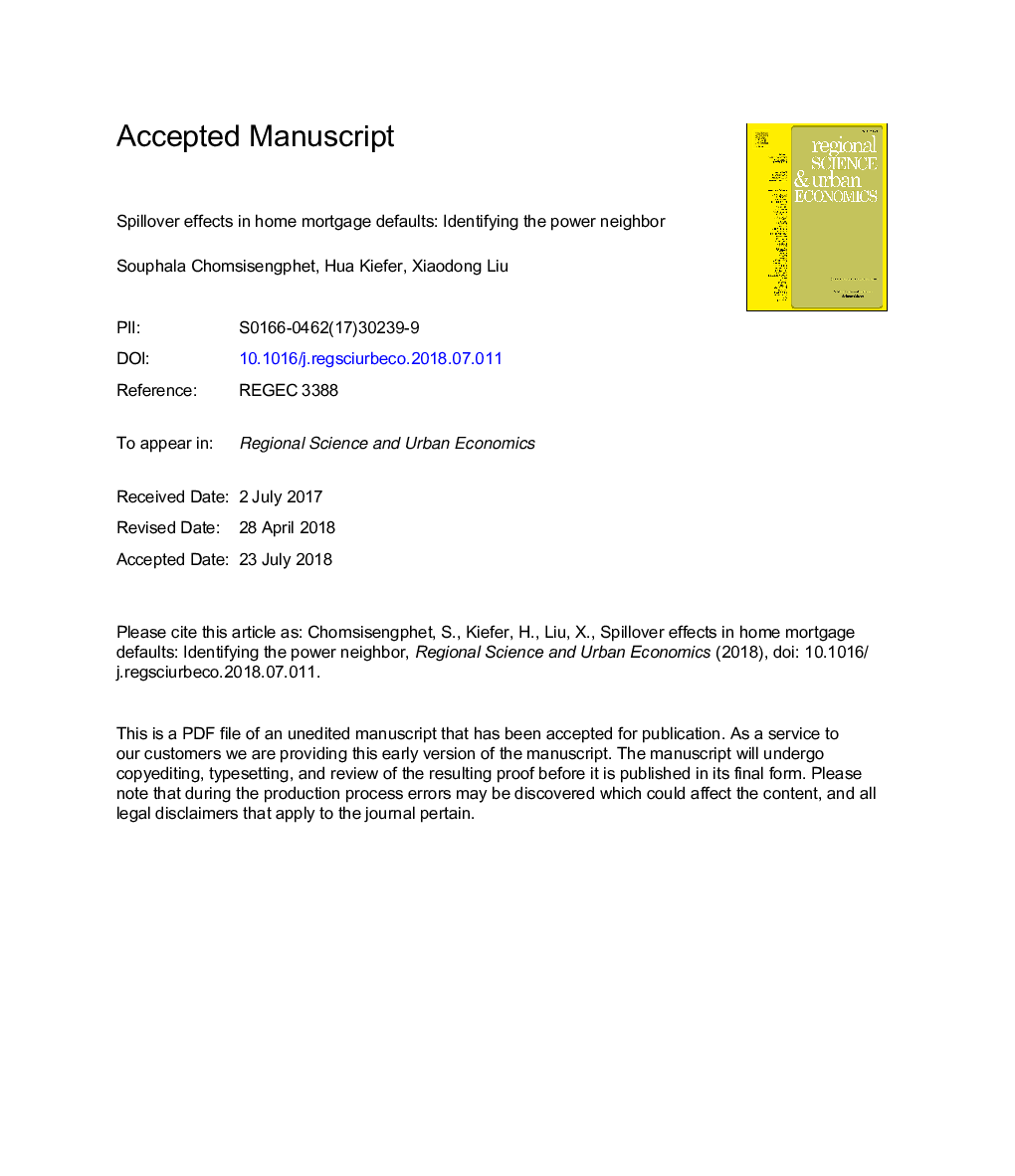| Article ID | Journal | Published Year | Pages | File Type |
|---|---|---|---|---|
| 7383589 | Regional Science and Urban Economics | 2018 | 47 Pages |
Abstract
This paper investigates spillover effects of mortgage defaults in the neighborhood on a homeowner's default decision. Following the interactions-based model of discrete choices in Lee et al. (2014), we explicitly model a homeowner's default decision as a function of predetermined risk factors as well as rational expectations on her neighbors' default decisions and find strong empirical evidence of spillover effects - in forms of time-lagged “contagion effects” and contemporaneous “multiplier effects”. Furthermore, the estimated model can be used to identify the “power neighbor” through whom a foreclosure prevention policy can generate the largest impact on a neighborhood. Compared to other homeowners, the “power neighbor” on average has less neighbors that defaulted in the past, a less risky loan, a smaller payment size, a higher credit score, and a more central location in the neighborhood.
Related Topics
Social Sciences and Humanities
Economics, Econometrics and Finance
Economics and Econometrics
Authors
Souphala Chomsisengphet, Hua Kiefer, Xiaodong Liu,
